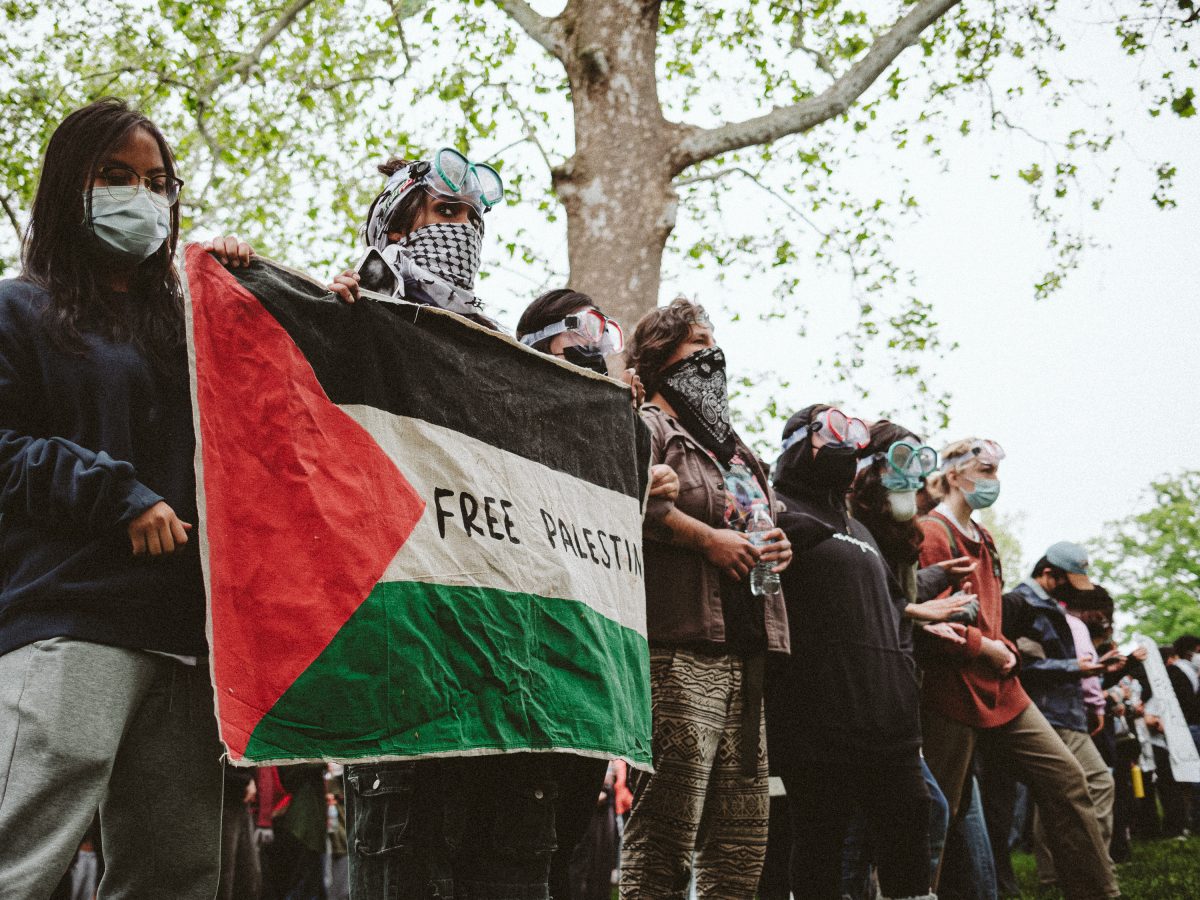The University of Virginia is withholding degrees from four graduating students who were arrested at the encampment for Gaza on May 4, pending trials by the University Judiciary Committee.
Eleven students face UJC trials in connection with the protest, with proceedings seemingly in limbo while students are away for the summer. While UVA asserts it is normal for degrees to be withheld amid a UJC trial, activists argue the university is violating student protesters’ freedom of speech in an attempt to justify the decision to bring Virginia State Police to the encampment and its refusal to meet activists’ demands.
While the UJC and University Deputy Spokesperson Bethanie Glover declined to comment on the specifics of the cases against the 11 students, Professor Walt Heinecke provided more information on the nature of the charges.
According to Heinecke, the UJC charges against students include “disorderly conduct on university owned or leased property, or at a university sanctioned function,” “any violation of federal, state, or local law,” and “failure to comply with directions of university officials.” The cases also allegedly mention violations of the following policies: exterior posting and chalking (PRM-008); tent use on university property (SEC-013); regulations of weapons, fireworks, explosives, and other prohibited items (SEC-030); and use of amplified sound on outdoor university property (SEC-041).
While some of the policy violations are self-explanatory, Heinecke says he is unaware of what the weapons, fireworks, explosives, and other prohibited items policy violation is referring to, but speculated it could be due to brief usages of a bullhorn at the encampment.
Heinecke is the current president of the UVA chapter of the American Association of United Professors and served as a faculty liaison to the students at the encampment throughout the protest. Since UVA decided to bring in Virginia State Police to forcefully break up the assembly, he has been working to protect student protesters from retaliation by the university for exercising their Constitutionally protected freedom of speech.
“The Student Affairs Office charges against the students are flimsy and overstated at best,” says Heinecke. “They appear to be a desperate attempt to detract from the University’s decision to use the Virginia State Police to violently shut down what was a peaceful protest against genocide in Gaza and the university policies supporting that genocide. The trumped-up charges appear to be no more than weak attempts to justify violating students’ First Amendment rights to speech and assembly.”
“It is standard practice for the university to withhold the degrees of students who have been referred for potential violations of the university’s policies or standards of conduct,” Glover told C-VILLE in a comment via email. “It’s important to clarify that free speech remains a core value of UVA, and any cases awaiting UJC review were referred due to violations of policy and standards of conduct, not because of constitutionally protected speech.”
Glover cited the fact that protesters were allowed to demonstrate for four days prior to the encampment being broken up by police as an example of the institution’s commitment to free speech.
For the graduating students facing UJC charges, the withholding of their degrees has put their personal and professional lives into limbo.
“As a first generation student, I tried my best to present myself as happy on a day [graduation] that is important not just for me, but for my whole family, but it was really hard, after my whole family saw UVA-approved brutality against me on the national news and while my diploma hangs over my head with no guarantee of when I will get it,” said Cady de la Cruz, a fourth-year Lawn resident whose degree has been withheld. “It is an empty punishment because I did everything to fulfill my degree. The only reason UVA has stalled the process is to make an example out of me.”
Both de la Cruz and Heinecke allege that UVA administration deliberately drew out the UJC trial in an attempt to pressure students into one-on-one meetings.
“The university delay[ed] the process on purpose because our cases are being used to teach a lesson to students of what violence and punishment the university will enact in order to repress activism and discourage all who consider protesting in the coming years, especially as the calls for divestment from genocide will only get louder next year,” de la Cruz said.
While UVA has dropped the No Trespass Orders against student protesters arrested on May 4, the university has not indicated any willingness to dismiss the UJC cases.
“Admin is revealing they are willing to upend all UVA norms and precedents to obliterate all calls to divest from genocide,” said de la Cruz.
